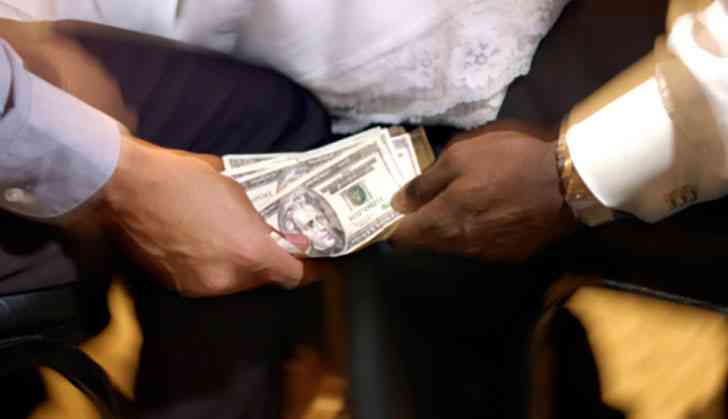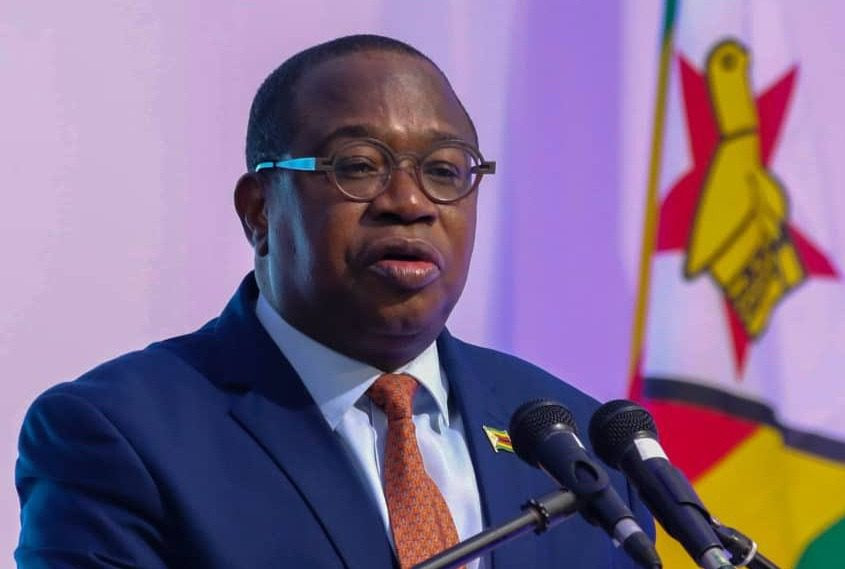
Let’s do some taxonomy—big English for classification — of these, the people who are stealing just about anything that matters from you and other places at the high end; the elites.
Stealing in Zimbabwe’s high places has become a social science.
You and I are howling every day about how they are giving each other fat tenders, how they are placing lucrative state-owned entities under their very armpits, how they are inflating the prices in this and that project, et cetera.
Yesteryear, in the late Robert Mugabe’s twilight, you noticed how money was being siphoned from the public coffers to purportedly fund the former first family’s foreign trips. We heard that they were claiming too much for the mostly useless and fabricated trips and most of the money ended up in a few bellies.
You also heard how the bad boys from the then first family spent round about a million quid in Sandton, South Africa, every week, spoiling gold digging lasses and hangers-on alike on expensive champagne and what not.
They even created a new company, Zimbabwe Airlines that they wanted to replace the national flagship, Air Zimbabwe with. This one was to be run by the former royal son-in-law, Simba Chikore. Then his brother, Derrick, became part of the mysteriously awarded Dema Diesel Power project that gladly, died with the power of its architects.
Not to mention that Bona Mugabe was being lined up to take over just about every public boardroom, with Grace, the mother pulling the strings from behind the bedroom curtains as the ever-old president was busy snoozing and dreaming of a famous handshake with Saint Peter at the Pearl Gates. They were not wasting time, grabbing just about every inch of Zimbabwean soil, taking farms, building palaces and making lots of hay as the sun sunk on Mugabe.
These things just didn’t happen. People spent long sleepless nights plotting the eating. They formed themselves into cartels. Very scientifically. So, you notice that, particularly from the turn of the century, stealing in high places became incredibly systematic.
- Zim headed for a political dead heat in 2023
- Record breaker Mpofu revisits difficult upbringing
- Tendo Electronics eyes Africa after TelOne deal
- Record breaker Mpofu revisits difficult upbringing
Keep Reading
Previously, they still stole. But they were random and not exactly smart about it. The game became well mastered during that period when the Zimbabwean economy started on a slide. When the political dynamics changed too and it became obvious to those in power and the surrounding environs that their longevity was never going to be guaranteed.
That was when the opposition became so strong that, from 2000, it was winning every election and the people in Zanu PF were surviving by rigging every election. Facing a serious existential threat, they realised that the best thing to do was to go for the money.
And that is the culture that we face, post-Mugabe, with indications being that things are going to get even worse.
As you are busy howling, they are busy planning, weaving intricate cartels that will keep you and your children grumpy for you don’t know how much longer.
The first type of cartel that I will focus on this week is what I will call the legacy cartel. These are syndicates comprising big-appetite thieves, who take advantage of their proximity to current political power to continue stealing as they have done in previous times. There are two ways to look at this species. It used to be close to the powerful of yesterday and connived with those that used to be in power then to make big, dirty money. But then, this type may also have been particularly close to those that took over the reins of power even then. Whatever the case, political power and influence are the venue of the banquets.
Kuda Tagwirei’s Sakunda Holdings, for instance, was a protégé of the Mugabe regime. That’s how you see Derrick Chikore also being part of the Dema project. That’s how, also, you see the company virtually taking control of the command agriculture scheme from which it made mega millions by fixing prices of farming inputs.
What’s not adequately clear, though, is how far Tagwirei benefited from possible ties with the then Vice President, Emmerson Mnangagwa, under whose supervision the command agriculture scheme fell. But it’s precariously tempting to think that the two knew each other as we say locally.
This is so because, when Mugabe gets out of the picture, we still see Tagwirei’s companies diving into the patronage provided by the so-called second republic of Mnangagwa. I am not making things up here. You all know now that this outfit called Kuvimba is essentially an aggregation of Tagwirei’s local and offshore companies.
And the president has actually turned it into a government enterprise, apparently to shield Tagwirei from US sanctions. The president has gone a step further to put the company under his direct control, maybe just to make sure?
It’s not clear how the president would benefit from doing that, but you can’t doubt the fact that Tagwirei has been gifted a further opportunity to make more money — though significantly reduced — through this kind of patronage. His company, Landela, got a good tender to buy buses for sale to public entities, even though we don’t know what happened to those coaches once they landed here.
Another good example in this category of looters is that of Wicknell Chivayo. It was during Mugabe’s time that Chivayo got paid millions and millions of dollars in an energy deal whose job he never did. Chivayo and Grace, the former first lady, both hail from Chivhu and, in a country where things happen so much along nepotistic lines, that factor might have helped him bigly.
In those days, Chivayo also hobnobbed with a celebrated G40 minister, Samuel Undenge, who was opposed to Mnangagwa’s Lacoste faction that was gunning (pun intended) to take over from Mugabe. And one other thing many people don’t know yet is that Chivayo was banned from using a military gym in the days of the coup, apparently for his troubles of being a G40 person.
When the Mnangagwa regime took over, we thought Chivayo was going to get finished. They revived his case on swindling government — to mean us — but they only flattered to deceive. In no time, the young man was back in business, alternating between spending nights in the dusty and snake-infested mountains for deliverance from his apostolic church and eating big money again.
As he says right in his own words, he is getting super tenders from the government — lying under the same breath, of course, that he is now also doing gas business in several African countries. I don’t think that anyone — himself included — is convinced that Chivayo is using clean money.
But what makes it even more interesting beyond Mnangagwa’s volte face on Chivayo is that the young looter has become incredibly close to the president. You noticed what happened the other time during the trade fair. Chivayo was given a double red carpet, well ahead of Mnangagwa’s cabinet ministers who were reduced to peripheral, sulking watchers when Kenyan President William Ruto came to officially open the expo.
That, naturally, walks with a number of questions. Like, how did Chivayo all of a sudden win Mnangagwa’s heart when at one time he had become such an enemy by being part of the Zanu PF faction that opposed his ascendancy to the presidency?
What has Chivayo been giving to Mnangagwa that makes him such a close ally now, even beating the likes of Kuda Tagwirei in the process? Who else in Mnangagwa’s close clique is bumping with Chivayo? Why is the president turning a blind eye to widespread complaints regarding Chivayo’s mysterious wealth? Does the president know something that we don’t know, especially given the demonstrated closeness between the two?
The questions are thick and fast, but the answers will come with the tortoise. Whatever the case, it’s clear that Chivayo, just like Tagwirei, has managed to transition from one eating political era to the other as part of a legacy cartel.
I will next week be looking at the other forms of systematic cartels that have emerged in Zimbabwe, just so as to aid your howling when they eat off your, and other granaries.
- Tawanda Majoni writes in his personal capacity and can be contacted on majonitt@gmail.com









